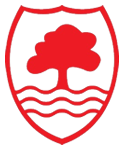Expressive Arts and Design (EAD) supports children’s creative development and expression. It helps children create their own art works and encourages them to value their own thoughts, opinions and skills. The two areas in this area of learning are: Creating with Materials Being Imaginative and Expressive Expressive arts is one of the EYFS seven areas …
Category: early years
6. Understanding the World (UTW)
Understanding the World (UTW) supports children’s learning about the surrounding environment. In this area of learning, children can explore new cultures and better understand basics that we often take for granted. Past and Present People, Culture, and Communities The Natural World Children will discover similarities and differences, what world and what doesn’t, what they can …
5. Mathematics (M)
Mathematics (M) area of learning focusses on simple concepts that are foundational to higher maths topics in KS1 and up. In EYFS children focus on the maths areas of: Number Numerical Patterns Learning maths can help with life skills such as spatial awareness, shapes and measurement, and problem-solving. Maths also serves for other uses like …
4. Literacy (L)
Literacy (L) skills will form a strong foundation for children’s school careers, and are split simply into: Comprehension Word Reading Writing With literacy, as a part of the EYFS seven areas of learning, children begin to build connections between spoken sounds and the letters in writing. In order to achieve this, they’ll need to start …
3. Physical Development (PD)
Physical Development (PD) is vital for healthy lives, as well as affecting other areas of learning. Both gross and fine motor skills are developed over Early Years in activities like writing and cutting. Practitioners plan by looking at these specific areas: Gross Motor Skills Fine Motor Skills As children move around, they’re exploring the world …
2. Communication and Language (C+L)
Communication and Language (C+L) encourages conversations and spoken language skills. Underpinning all skills, it’s foundational for children to be able to interact with their peers and their learning environment. It’s split into the following distinct areas: Listening, Attention and Understanding Speaking There’s a lot more to language development and communication than simply ‘talking’. It refers …
1. Personal, Social and Emotional Development (PSED)
Personal, Social and Emotional Development (PSED) focusses on children’s mental and physical wellbeing. Children work on long-term skills and awarenesses to build a healthy foundation they can take forward. It’s divided into these topics: Self-Regulation Managing Self Building Relationships Personal, social and emotional development (PSED) provides children with lots of social opportunities. Children can learn …
